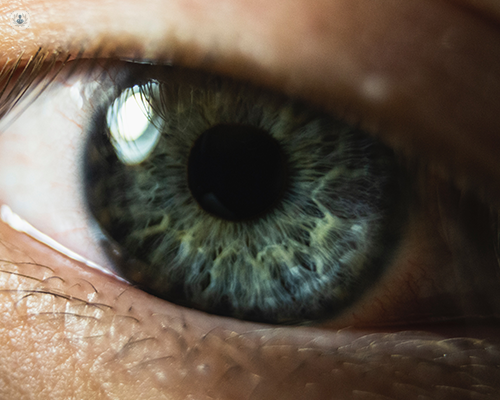A comprehensive overview of cataracts and cataract surgery
Written in association with:In this article below, distinguished consultant ophthalmic surgeon, Miss Sudeshna Patra, discusses cataracts and cataract surgery in expert detail.

What are cataracts?
Cataracts are an extremely common age-related condition, where the natural lens of the eye becomes cloudy, leading to blurred vision.
How can cataract surgery help vision?
Cataract surgery can help restore clear vision, getting rid of the cloudiness that caused blurred vision by removing the natural lens of the eye and replacing it with an artificial implant.
How is cataract surgery performed?
Cataract surgery is performed by a microsurgical technique known as phacoemulsification which uses ultrasound energy to breakdown the cataract and remove it through a small self-sealing wound of 2.2 mm. The artificial lens implant is then placed inside the eye.
Before surgery, Miss Patra examines the eye to assess the cataracts' severity and discusses your needs and expectations. You will undergo a ‘biometry’ which measures the size of the lens implant (IOL) to be used. The IOLs come in various types, including monofocal (correcting distance vision), enhanced monofocal (correcting distant and intermediate vision), multifocal (correcting near and far vision), and toric (correcting astigmatism). The selection of the correct size and type of lens implant is critical to achieving a successful outcome.
Cataract surgery is usually performed under local anaesthesia which means you will be awake during the operation. On the day of surgery you will have drops put in the eye to dilate the pupil as well as eye drops to numb and disinfect the eye. During surgery you will be positioned comfortably and your face covered with a sterile drape. A small incision is made in the patient’s eye and an opening made on the surface of the cataract.
The phacoemulsification probe is used to break up the cloudy lens and remove the fragments from the patient’s eye. The IOL is inserted through the same incision. The surgery takes around 20-30 minutes. You are discharged with post-operative drops for four weeks.
In terms of recovery from cataract surgery, what can I expect?
Most patients report an improvement in their vision within a day or two. Full recovery from cataract surgery, though, takes a few weeks. You will be advised to see an optician after your week four postoperative visit.
What are enhanced monofocal IOLs and what benefits are there compared to other types of IOLs?
Enhanced monofocal IOLs are highly effective when it comes to improving vision. Due to the unique optical design, it is easier for the eye to adapt than multifocal IOLs. Miss Patra uses these IOLs in combination with a technique known as mini-monovision and is able to deliver spectacle free vision for almost 90 to 95% of activities.
What should I avoid doing after cataract surgery?
In the first two weeks after surgery, you should avoid rubbing the eye, bending over to lift heavy objects, and straining. You should be careful that soapy water does not enter the eye during showering and bathing.
Driving, going to the gym and swimming are also best avoided during this period. In the third and fourth week after surgery you can can gradually return to certain activities after discussion with Miss Patra. This will depend on how quickly the operated eye is recovering, the vision in the non-operated eye, as well as the type of activity.
What should I do with my old glasses after cataract surgery?
The old glasses will no longer work for the operated eye. Keeping this in mind there are a number of options to cope with this issue until new spectacles can be prescribed.
- Many patients are able to cope without there glasses or will ask their optician to knock out the lens from their glasses on the operated side.
- Some patients will buy a pair of off the shelf reading glasses to help with small print or near work.
- Others will continue to wear their old glasses if they are dependent on their non-operated eye to see.
What could go wrong after cataract surgery?
It’s important to remember that 95-98% of the time, cataract surgery is uncomplicated and will go as planned. In most cases, the complications do not affect the surgical outcome although the recovery period maybe longer. This could mean the surgeon performing some additional steps during surgery or prescribing extra post-operative eye drops. Sometimes, a second operation may be required.
The most serious complications that can affect the surgical outcome and lead to loss of sight are severe infections or intraocular bleeds. These are rare occurrences (less than 1:2000).
To book an appointment with Miss Sudeshna Patra today, simply go over to visit her Top Doctors profile.


